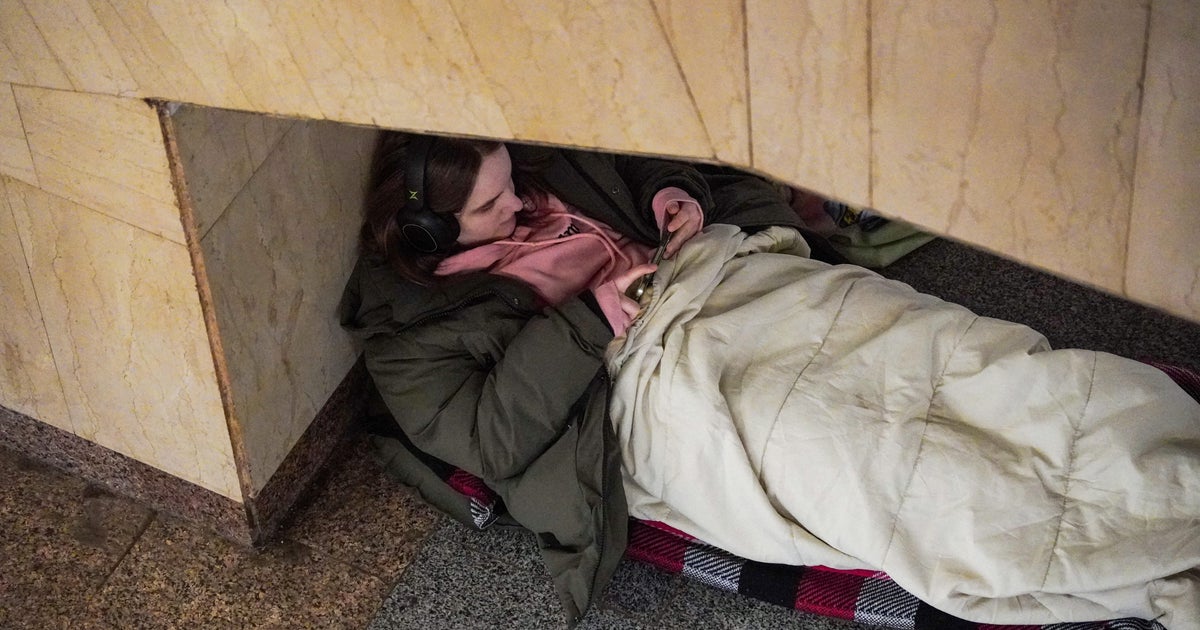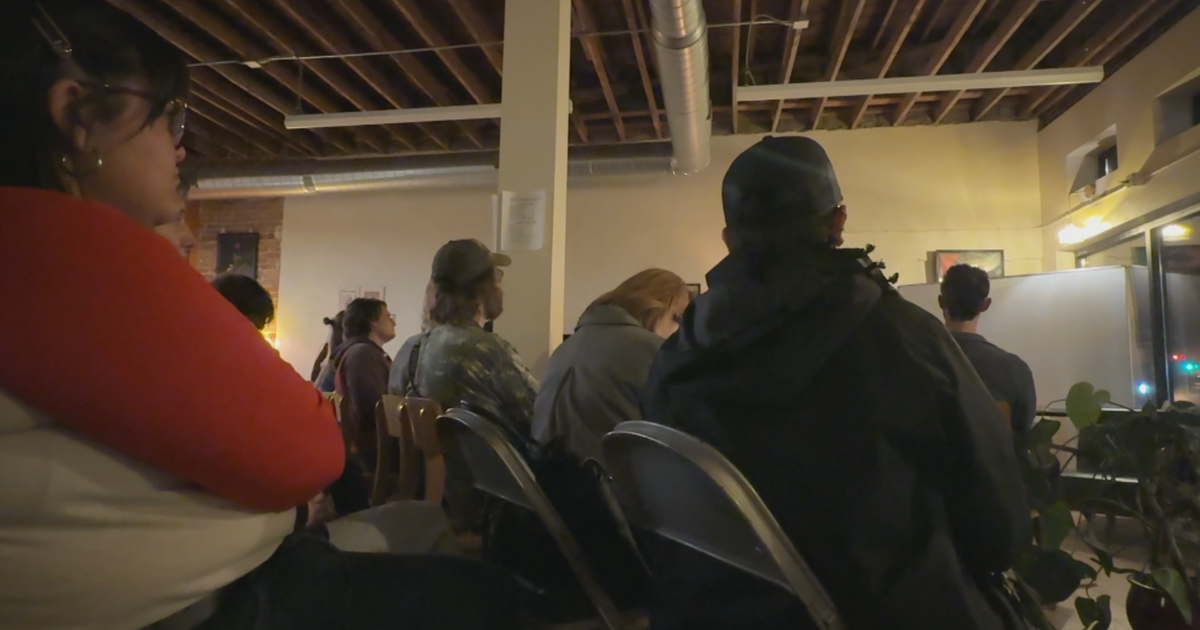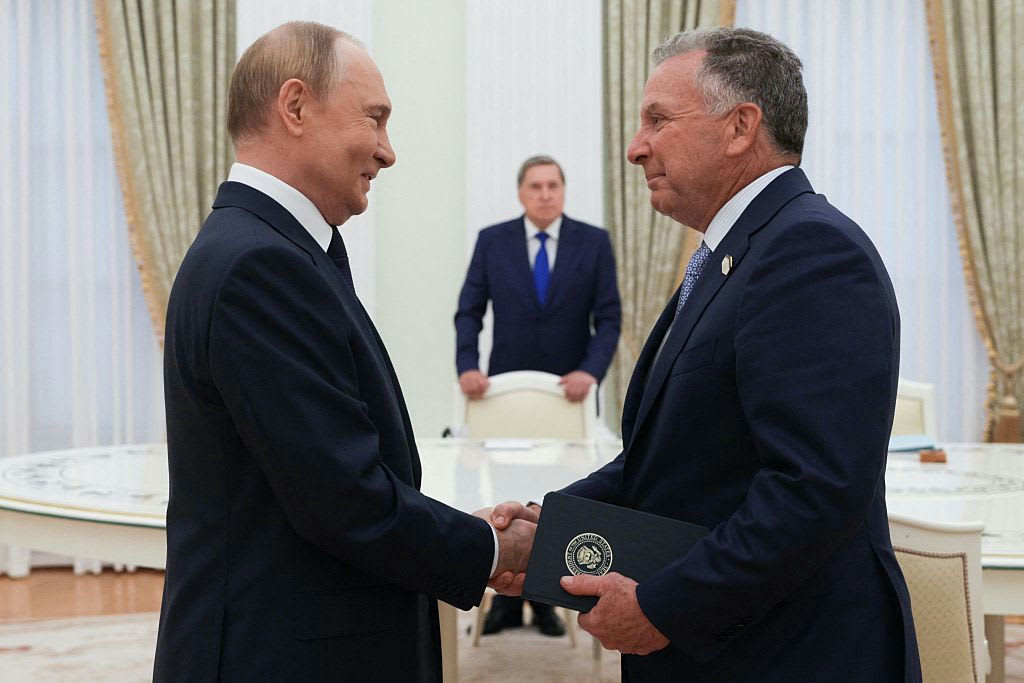Ukrainian lawmaker and social media warrior discusses the battle online
On March 4, 2022, "CBS Sunday Morning" correspondent David Pogue interviewed Inna Sovsun, a professor and Ukrainian Parliament member who's now active in the social-media resistance, for his report on the social-media battlefield during Russia's invasion of Ukraine.
The following are edited highlights of their conversation:
Watch David Pogue's interview with Inna Sovsun:
David Pogue: You've been active on social media, and so have many of your fellow citizens. It's almost like you're fighting a war in a different way. Is this part of an organized effort, or is it just the same idea occurs to every Ukrainian?
Inna Sovsun: I think it is part of this extremely decentralized resistance movement. And that is, people are just using the contacts that they have, they're using the platforms available to them, and they're putting them to good use to do whatever.
And people are coordinating, like, humanitarian aid efforts from different cities of Ukraine, making sure that we have the right food in the right place. People are coordinating support from abroad being brought here to Ukraine, using social media platforms.
I'm actually in a place — for some reason, I ended up in a house with multiple other people. And what they're doing right now is —some of them are like buying the helmets from Poland, from Netherlands or something like that. And they are delivering them back home to Ukraine, and that is being done just by calling someone you know, and then they find someone they know, and then they find someone else they know, or they post something on the chat, or in a Telegram or whatever. Yeah. So I can just show you around. There are some people over here doing exactly that. Just over here. Say hello!
Pogue: Hello, everyone! So, they're online right now, posting?
Sovsun: Oh yeah, they're, like, constantly. I think we're online like, like 20 hours a day right now. So in the background, someone is saying, "OK, I got 20 helmets over here in Estonia," and then we, "Who is our guy in Estonia, who is our guy in the embassy?" And yeah, those are the people who were not doing that before. So those are the people who used to be like doing boring stuff, like corporate lawyers or something like that. [LAUGHTER, LIKELY FROM A CORPORATE LAWYER] And now, they're all engaged in this resistance movement, which is to a very big extent being done online.
Pogue: It seems like a lot of work, a lot of time.
Sovsun: It is. It feels like we are constantly stuck to our devices. Like, I realize it takes me longer now just to dry my hair, because I'm constantly checking the messages all the time. But that is because the situation in Ukraine is changing so rapidly and we just need to hear the news.
And we are also—well, you know, we are at war, and bombs are falling on our heads, and we want to make sure that we know the recent developments because the situation is just so tense.
Pogue: We noticed that President Zelensky has made some of his most effective messages as selfies himself, not in the television studio.
Sovsun: I have to say that I am representing an opposition party. So typically, in an ordinary situation, we would be criticizing the president so heavily.
But as of now, we all are staying united. And it doesn't matter which political party we belong to. We are all fighting for our land right now, regardless of the political affiliations.
And I think those selfies, they are just showing that he is engaged, that he is in, that he is doing the work right now. He doesn't have a lot of time to record those in the set, you know, in official settings. But he's just been there, and he's just talking to the people as a person, at the same time while being commander in chief of the Ukrainian Army and the Ukrainian state.
So, I do think that was his kind of thing before. So it's not like he only started doing this right now. Sometimes they were irritating in the past. But now this doesn't matter, because I understand that he's under extreme pressure. And if he had time to record those like, like, well-prepared videos, that would be just strange in this circumstances.
Pogue: Right, right. Do you get any kind of feedback from the social media posts that you make? Do you have a sense that people are reading it and responding?
Sovsun: Oh, so much. In case someone was trying to reach me by Twitter and I was not responding, I'm sorry, because I'm just getting hundreds of messages every day from people all over the world.
Yes, we are getting response. We are feeling that the people are, you know, that we managed to inform the people of the world about the pains that are inflicted upon the Ukrainian people by this crazy man in the Kremlin, who decided that he can just start throwing bombs onto a civilian population and kill our children.
Pogue: Ah—(off-camera conversation) Oh, the Kremlin just announced they're blocking Facebook in Russia, so ….
Sovsun: Well, I suggest they block Vladimir Putin.
Pogue: I'd like— I'd like to know how you see this effort of the citizens to use social media. Because it's really something unusual.
Sovsun: It is unusual. And it's actually—we're still trying to grasp this, the situation we're in. I mean, 10 days ago, I was living in my apartment. My son was close to me, and now my son is far away in western Ukraine. My boyfriend rejoined the army. My mom in western Ukraine. My dad is with territorial defense, and I couldn't get in touch with him for three days, and just completely going crazy because of that. So our lives have changed so much, and to such a big extent.
And I just want everyone to know that we are fighting. We are really doing our best, but we really need the help from the West. We are really asking for you to help.
We can do miracles. We are doing miracles. I believe if this is our way for auditioning for NATO, we are doing a great job. But we can't protect our sky. And as long as we can't protect our sky, I'm just so much afraid that the efforts of millions of Ukrainians would be just in vain, because nothing we are doing here on the ground will save us from the bombs falling on our heads.
Pogue: So that's what you've been tweeting a lot about—the no-fly zone issue?
Sovsun: It's the most scary thing, is the most scary part of all of this. Like, just one missile hit and it destroyed a residential building, killing 49 people in one blast. That can't be happening. They just can't be happening. And we just want the world to say that they realize that that can't be happening, and just help us.
UPDATE: Sovsun and her compatriots are continuing to publish social media reports regularly from the Kyiv area as the war enters its third week.
For more info:
See also:



